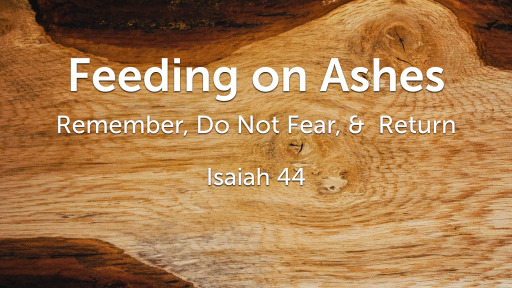Isaiah 44:9-11. They that make a graven image are all of them vanity: and their delectable things shall not profit; and they are their own witnesses; they see not, nor know; that they may be ashamed. Who hath formed a god, or molten a graven image that is profitable but for nothing? Behold, all his fellows shall be ashamed; and the workmen, they are of men: let them all be gathered together, let them stand up; yet they shall fear, and they shall be ashamed together.”

God has always been very clear, throughout the Bible, that idolatry will end in emptiness (vanity). The second commandment in Exodus 20, following the first that the people should worship no other gods before Him, was that they were not to make and carved or molten or any other sort of images that they would worship (Ex. 20:4-5). The greatest national sin of Israel has always been their habit of turning to the worship of the idols of the nations around them. Every time they fell into that sin, God allowed the natural consequences of their sin to fall upon them. They would then return to God, but it was a repeated cycle down through the centuries of the history of Israel.
The idols that men make are never profitable. They do not see, hear, or know.The workmen who create idols for profit will be ashamed, knowing that what they create themselves is only wood, stone, or metal. “But these figures represent gods,” say those who worship idols. “They give us a focus for our worship. What can be wrong with that?”
The answer is simple, really. Those idols and images take the focus off the true and living God, and turn the attention of worshipers away from Him.
How can we argue with what God Himself has to say? So much evil has been done in the name of idols, including the sacrifice of living babies to the fiery embrace of Moloch. That is just evil. There is no other way to describe the satanic practice of sacrificing human souls to any god.








